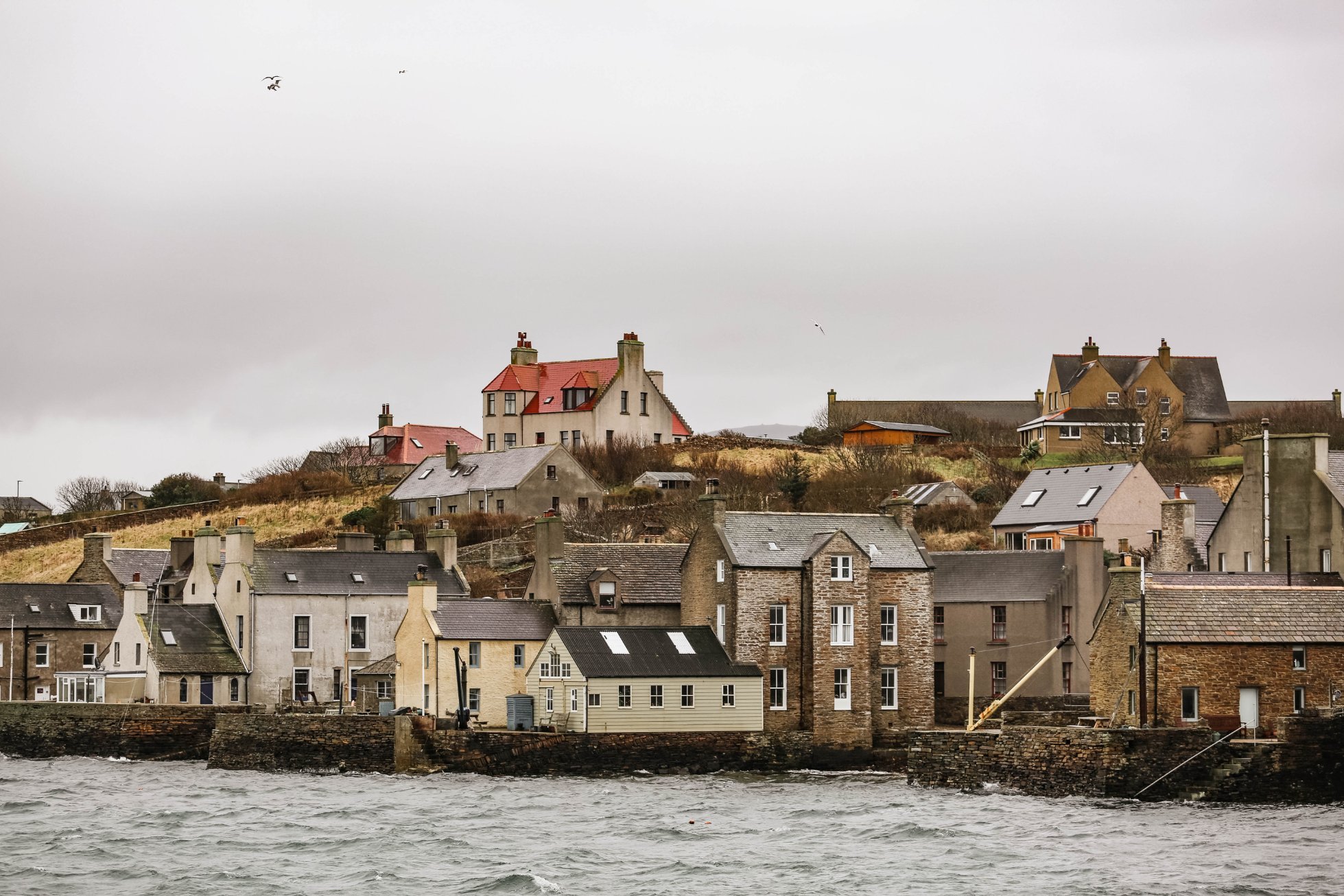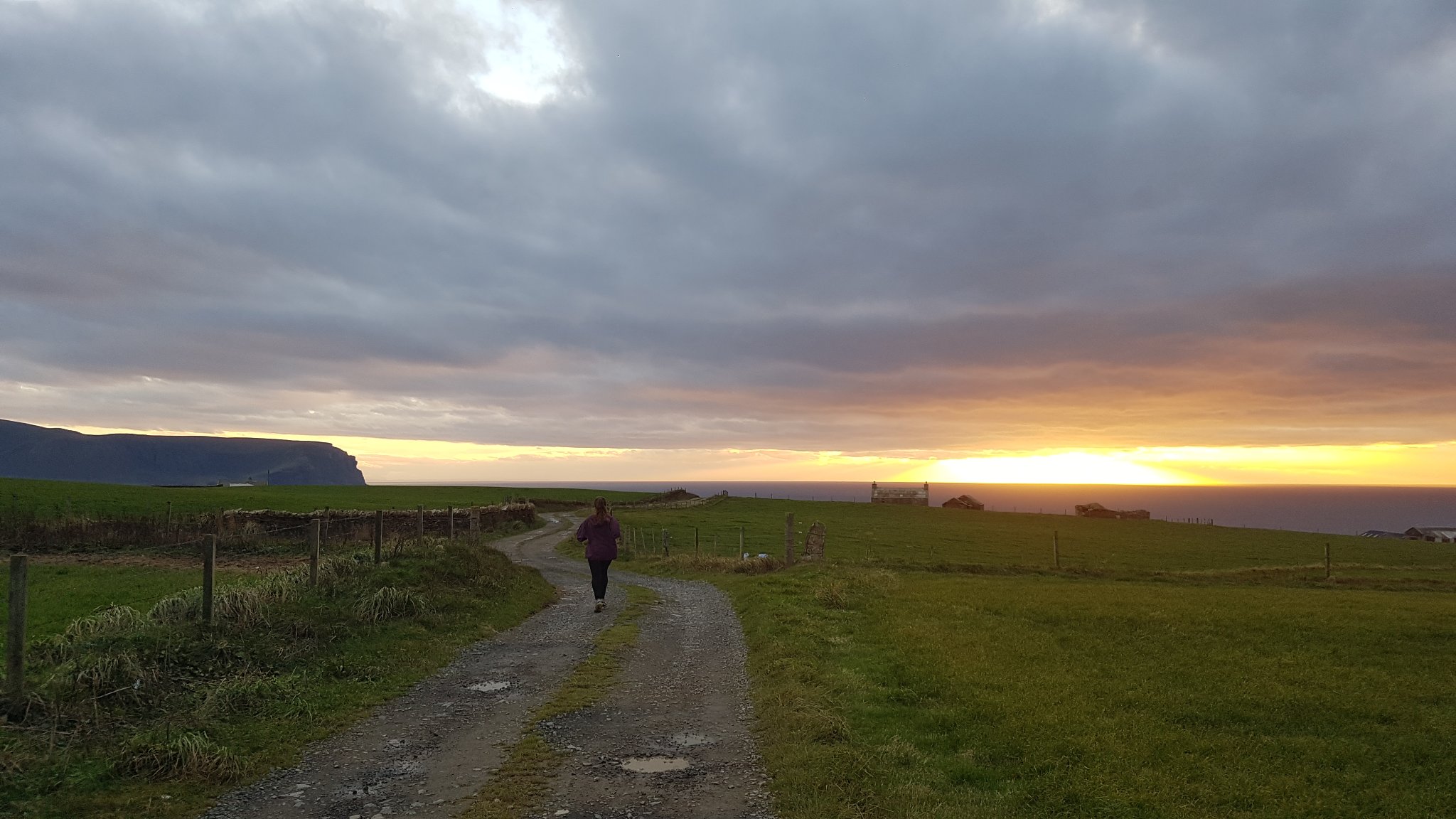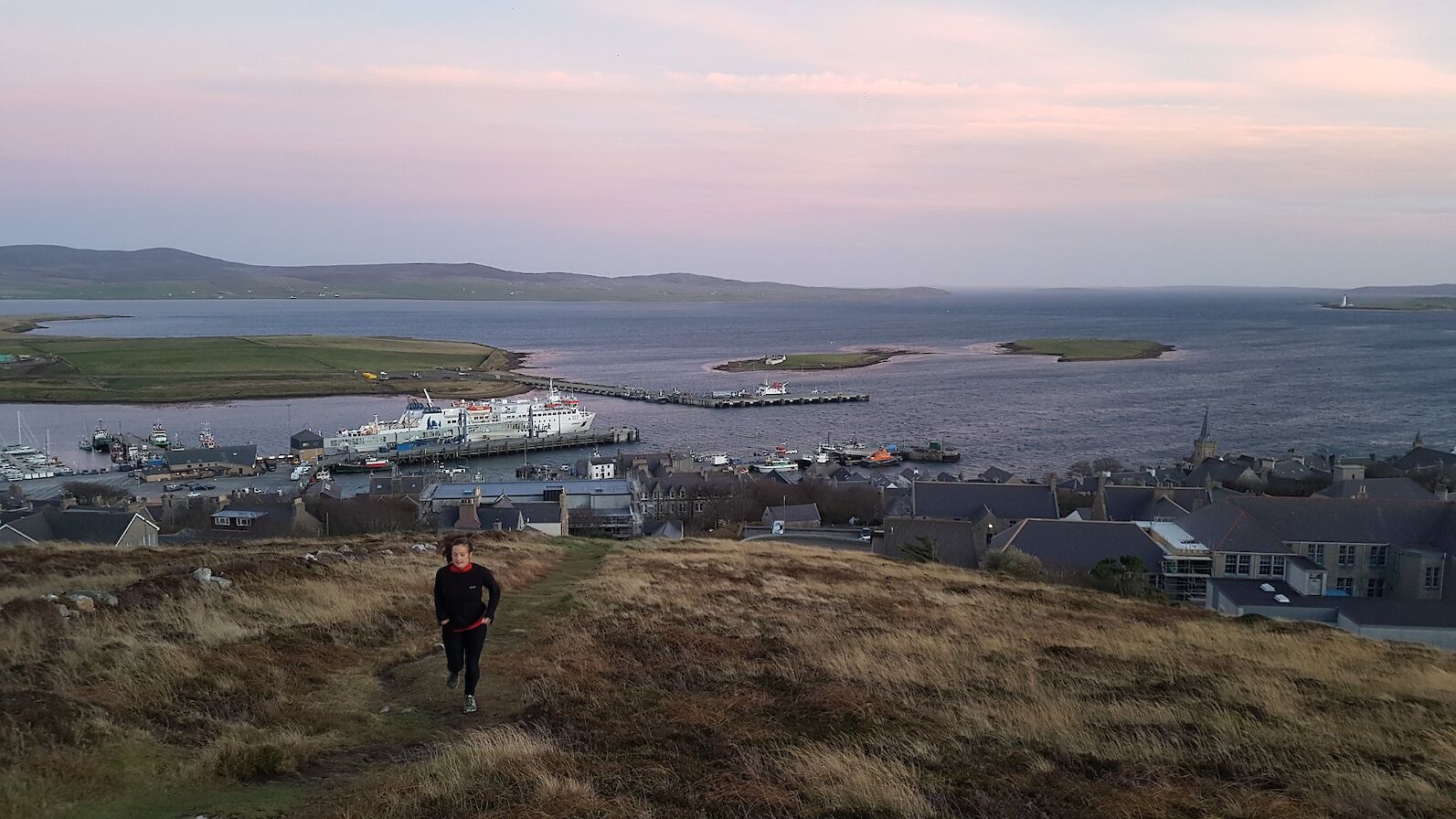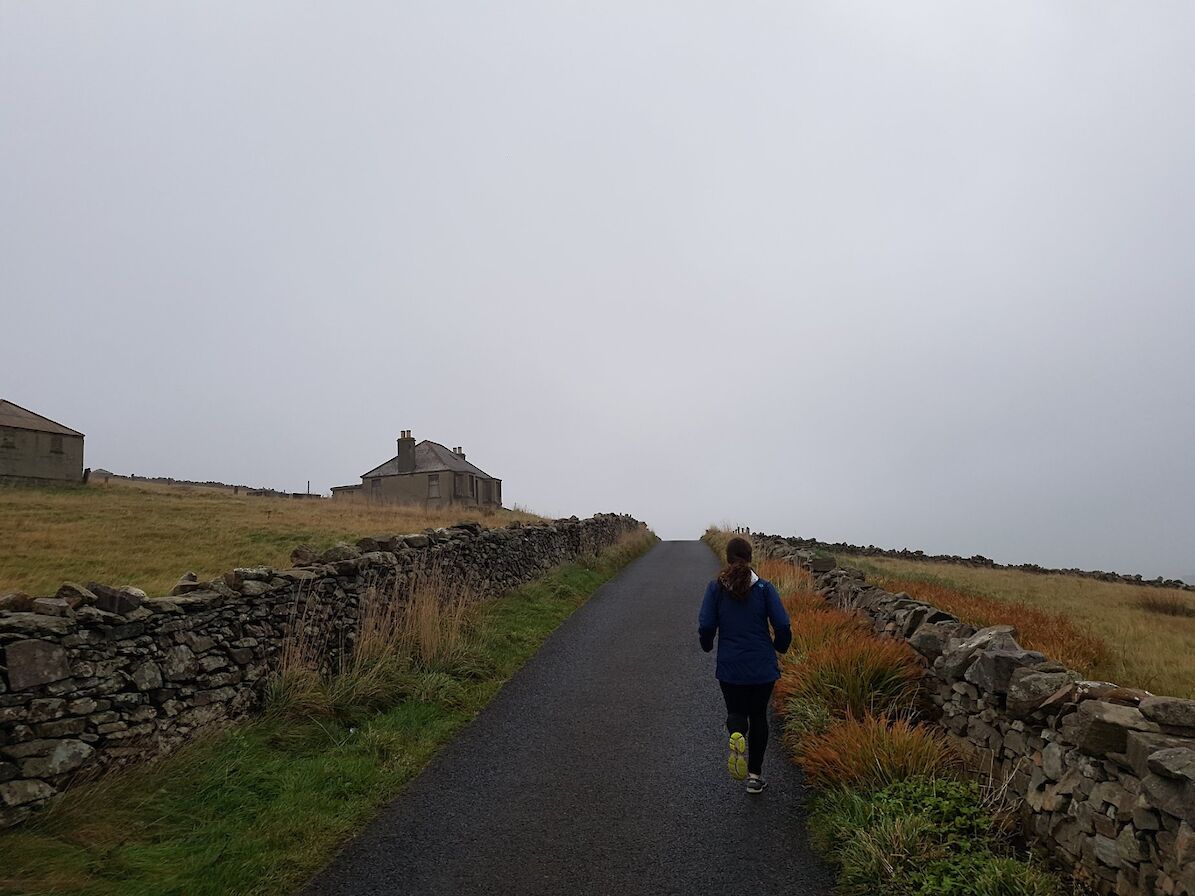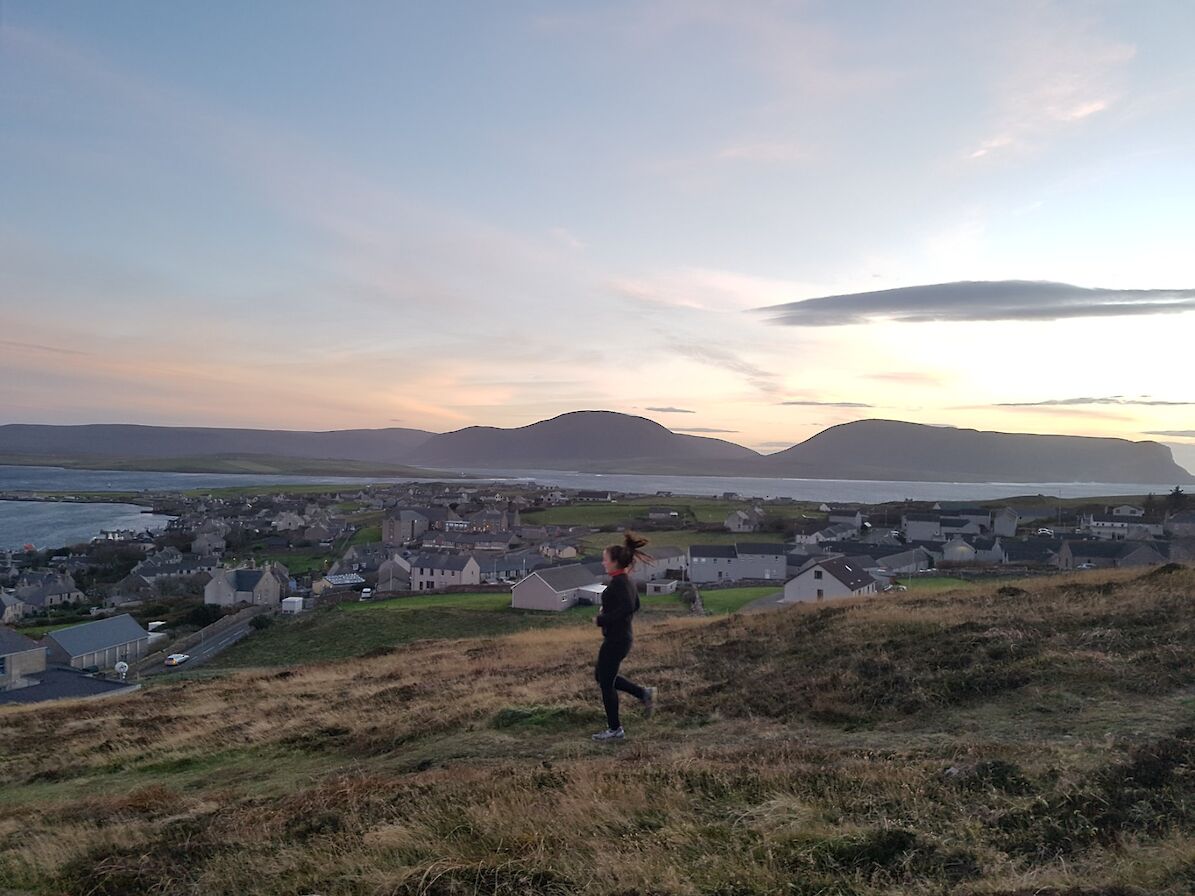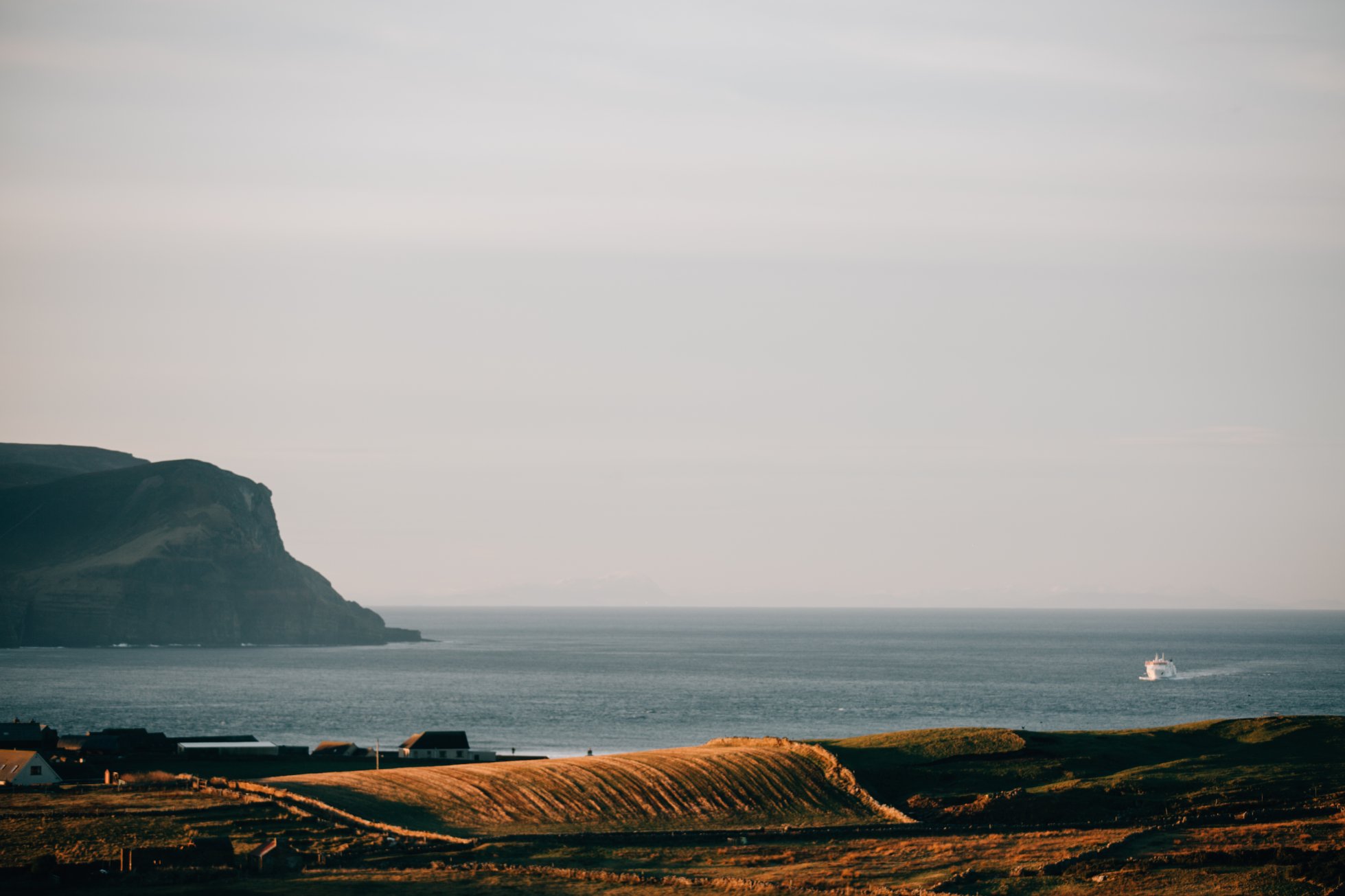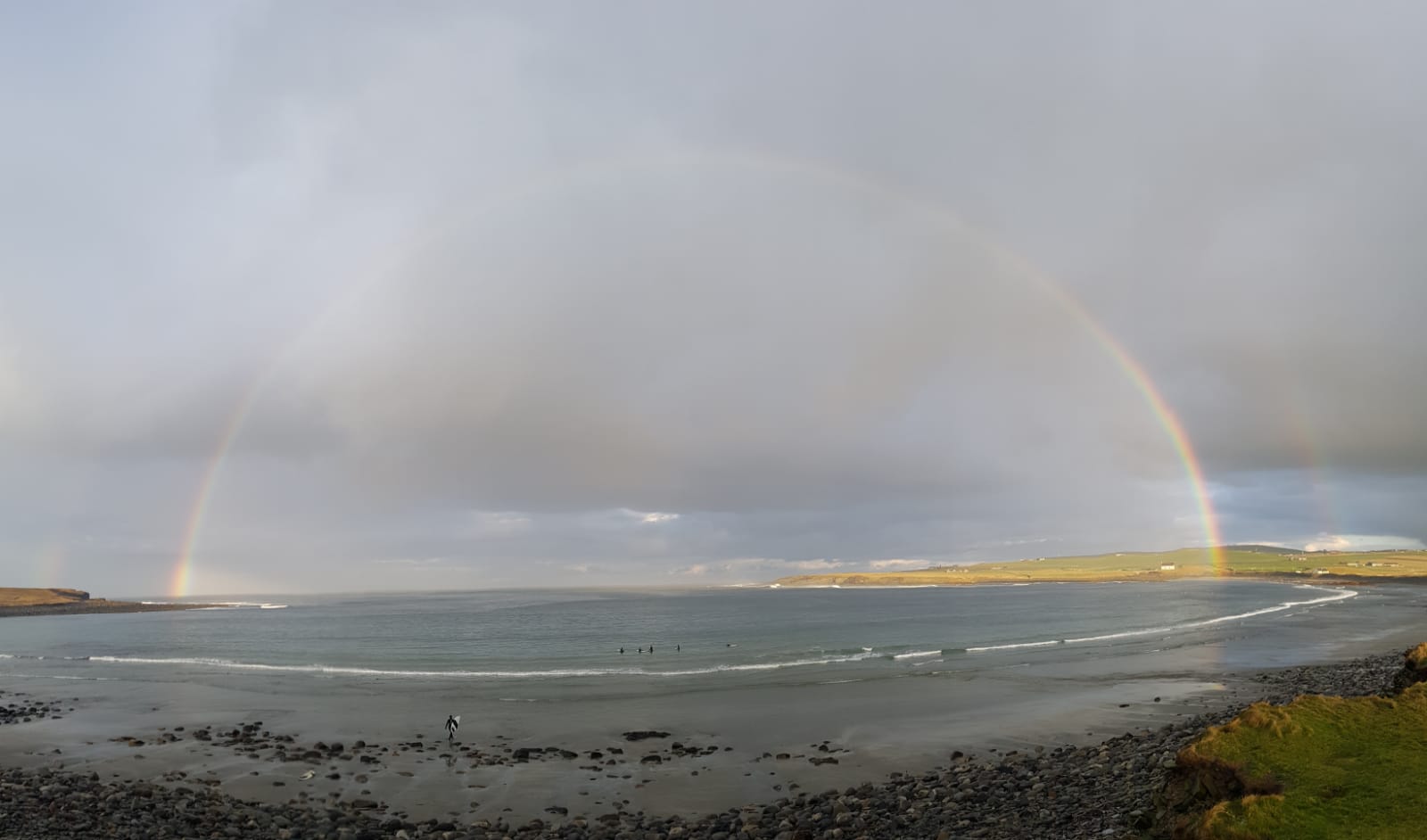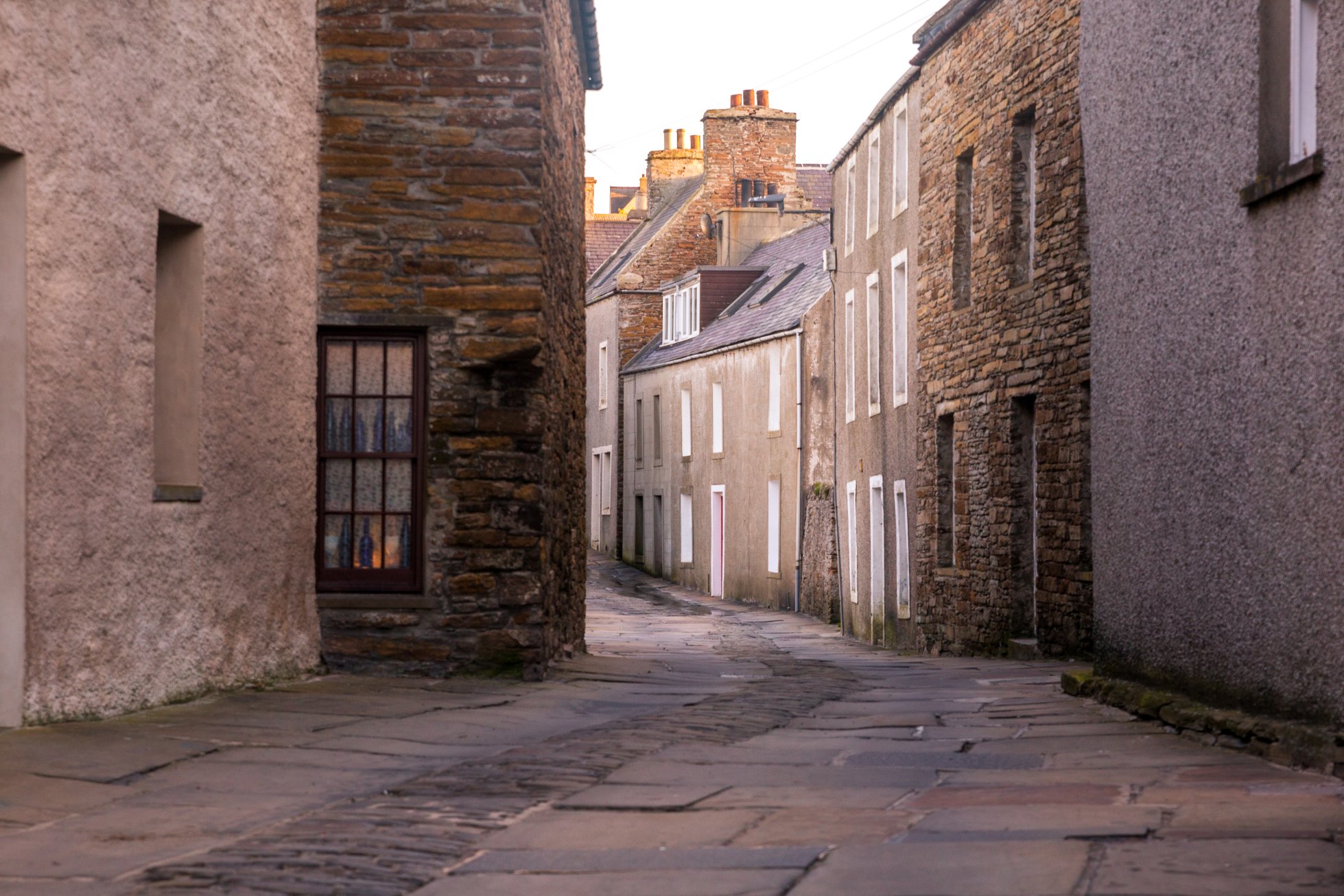Taylor St. John recently swapped Glasgow for Orkney with her partner. Originally from the United States, Taylor will be keeping us up to date with her island experiences. This month, those initial footsteps into island life.
When I moved to Orkney from Glasgow in September, I was halfway through training for the city’s Great Scottish Run. In week five of my program, I’d left my flat on the first floor of an eight-residence tenement building, descended a flight of concrete steps and opened the automatic-lock door onto the streets of Yorkhill. I'd jostled past tourists gathered in front of Kelvingrove Art Museum, then jogged in place with pedestrians all waiting for the green man’s summons at a series of traffic lights. My legs finally found their stride as I crossed into the relative wilderness of a city park, following the Kelvin River north under gothic bridges that carried the bustling of West Enders above.
In week six, I laced up and stepped directly from an old stone house in Stromness onto a sloping front stoop to meet sea air and silence.
In this new island home, suddenly streets of commuter traffic had been replaced by single-lane country roads and empty coastal tracks, the sound of wailing sirens traded for mooing cattle. If a vehicle passed me on my run, it was often a tractor lumbering to the next field, and I’d have to jump onto the divots of grass where roadside meets pasture while it rolled past. Not a single traffic light; no green men.
There was wide open land here—land that I didn’t yet know very well with boundaries undiscovered. There was also heavy wind, rain and undulating terrain with which I needed to begin the business of developing a close, personal relationship. Running was my first vehicle in exploring all of this and is now tangled in those initial memories.
I’m no stranger to starting over. In the past ten years I’ve moved more than my ten fingers can count, and with each destination comes the ritual of opening up to everything new while trying to maintain some hold on the familiar—those hobbies or routines that have been carried along through all the uprooting.
Over the course of my first autumn and winter in Orkney, those fragments of familiarity tested out in new territory became an unofficial introduction to the island.
One Tuesday evening in October, I walked down to the Episcopal Church with a notebook and a pen and joined the Stromness Writing Group. I hadn’t dipped a toe in the world of creative writing since university, but the group was open to new members—of any skill level and discipline. That first night, sitting around a fold-out table with pews pushed aside and given a prompt about superstition, I eked out fragments of a story and felt that lighting strike that comes when you create just for the fun of it. Writers whose histories in Orkney were much longer than mine went one-by-one around the table to tell stories infused with bits of the island life I was just getting to know.
I was introduced to my neighbour that night. We hadn’t crossed paths on the flagstones along our winding close in Stromness, but instead sharing words around a table in a sanctuary on a stormy October night.
Calm appears in fleeting moments on Orkney, as my runs were teaching me. Along Outertown Road, I’d often stop in my tracks on a nice day to take in the ocean panorama. When a squall blew through the same spot was exposed and menacing.
I’d tilt my head into a groaning wind and struggle up an incline, looking down to make sure my feet were still moving forward. Rain assaulted from all directions, and I’d anticipate the turn that lead away from the coast into the heart of the countryside.
January came and so did darkness. Scandinavians, our North Sea neighbours, embrace hygge and get cosy indoors. I’d been convinced to join a group of friends bobbing on a surfboard in seven degree North Atlantic water. The collection of second-hand neoprene I’d squeezed into didn’t stop the cold seeping in.
Every dip under the ocean took my breath, but so did the sunlight dotted across the surface, the double-rainbow hanging overhead, and an empty, wild stretch of coast.
Surfing is one of the few sports I’ve tried in most of the countries I’ve travelled, and the perspective gained from a board looking back at the shore is a privileged vantage point, unable to replicate with two feet on land. At Skaill Bay, it’s of treeless earth hugging in around you. A solitary white kirk stands on the left and neatly marked fields of green rise beyond. On the right, cliffs stick out into crashing waves. And straight ahead stone and grass banks lead to a settlement 5,000 years old; an unrelenting sea breaking onto an ancient shore.
This group of islands hanging just off Scotland’s north coast is so stark and unforgiving, so harsh and often so unthinkably beautiful, that it dominates every bit of the everyday here. The pace of life is tethered by the elements, dictated by natural rhythms—so unlike the city I’d left behind. At times this pace was frustrating, and despite the old hobbies and also new ones, I would feel that my days and weeks lacked eventfulness. But building a life in such a raw, unhurried environment seemed to first require slowing down enough to adjust to that rhythm.
Back on the road, I wasn’t getting any faster either. But Orkney, the patient teacher, was hardening my resolve. It was also showing me I was no longer a stranger. Each day I laced up my shoes and headed out the door, I knew better where I was going. Through the village, past the harbour and the Co-op, I’d run all the way to Copland’s Dock, the site where I joined the whole town warming by a two-story tall bonfire on Guy Fawkes Day.
Along an unnamed farm road, I shouted hello’s to the sheep, cattle and team of Friesian horses, each herd and its patch of grass familiar to me. Where Nethertown Road meets Hoy Sound, I got smacked to a standstill by a wall of wind, the hardest I’d felt yet. A man with a cane and his Border Collie passed by, and for a moment I thought we might all be lifted into the sea.
He continued on, comfortable in the elements, and I made the turn back toward the campground in my mind before it came.
 Originally from the States, Taylor is a freelance writer who’s spent the last several year collecting odd jobs around the world. She’s been a lifty and fish-monger in New Zealand, a bed-maker and vineyard worker in Australia, and, most recently, a destination specialist for a tour company in Glasgow. In 2018 she joined her partner in Orkney for his job in the renewable energy industry. Taylor’s favourite thing about daily life in Orkney is savouring the moments of absolute quiet —and sea views—that are no longer reserved for holiday. Also, trying to befriend all the farm animals. You can read more of her stories on her personal blog, The Out Roads.
Originally from the States, Taylor is a freelance writer who’s spent the last several year collecting odd jobs around the world. She’s been a lifty and fish-monger in New Zealand, a bed-maker and vineyard worker in Australia, and, most recently, a destination specialist for a tour company in Glasgow. In 2018 she joined her partner in Orkney for his job in the renewable energy industry. Taylor’s favourite thing about daily life in Orkney is savouring the moments of absolute quiet —and sea views—that are no longer reserved for holiday. Also, trying to befriend all the farm animals. You can read more of her stories on her personal blog, The Out Roads.
